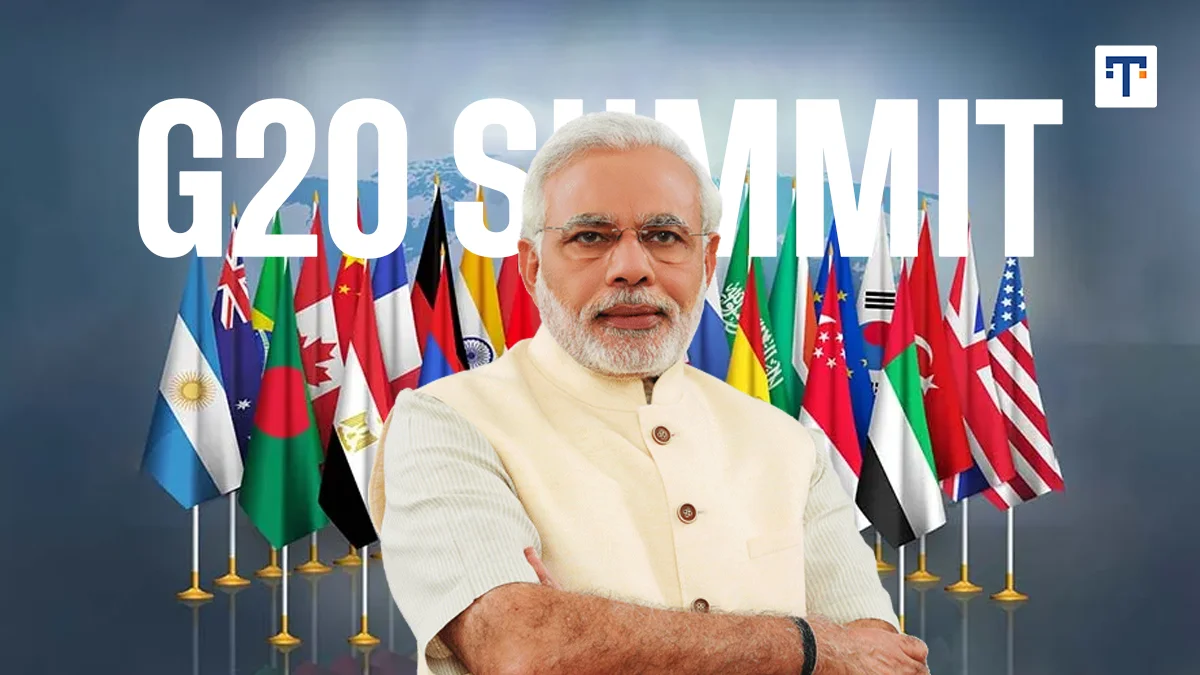Necessary Always Active
Necessary cookies are required to enable the basic features of this site, such as providing secure log-in or adjusting your consent preferences. These cookies do not store any personally identifiable data.
|
||||||
|
||||||
|
||||||
|

In Focus
A renewed push for technology-driven development and sustainability shaped the agenda of PM Narendra Modi’s interventions during the G20 Summit in Johannesburg, with multiple policy proposals anchored in digital access, AI governance, and resource circularity, as per the Hindustan Times.
In these discussions, Mr. Modi at G20 Summit emphasized the need for growth models that integrate technology, training, and ecological balance. He advanced a development framework built on Indian values, which he described as capable of supporting inclusive global progress.
Across official interventions, India positioned technology as a catalyst for structural development, proposing initiatives spanning public health, satellite data access, and critical mineral recycling. Mr. Modi called for updated global benchmarks for growth, arguing that traditional economic indicators do not reflect the needs of underserved populations or ecological pressures.
He outlined six initiatives: open satellite data sharing for agriculture and disaster response, a global healthcare response team, a traditional knowledge repository, enhanced skills development for African nations, measures to counter the drug–terror finance nexus, and circularity in critical minerals.
According to the Hindustan Times, he stated that these proposals reflect India’s long-standing view that development should align individual, societal, and environmental well-being. Recently, Karnataka announced new tech policies and launched the KEO AI PC at the Bengaluru Tech Summit 2025.
Notable Highlights Of This Discussion
The bilateral meeting between Prime Minister Modi and President Cyril Ramaphosa, highlighted by Africa24TV, further reinforced technological cooperation as a shared priority. The leaders reviewed opportunities in digital public infrastructure, youth skills development, mining, and AI-linked industries.
The Prime Minister and the President were aligned on strengthening the Global South’s influence in governance frameworks and future G20 negotiations. In other news, major tech companies like Adobe, Meta, and Google partnered with IICT to advance AVGC-XR education in India.
Reports noted that He thanked South Africa for successfully hosting the summit and reaffirmed India’s goal of creating accessible technological ecosystems for partner nations. As part of this narrative, AI governance emerged as a key area of forward-looking policy coordination.
“AI should be responsible, human-centric, and accessible for all,” Prime Minister Narendra Modi stated, as reported by NewsonAir.
Key points at a Glance
The policy emphasis advanced through Mr. Modi at the G20 Summit signals a maturing regulatory and operational graph for India’s AI ecosystem. The call for global cooperation on responsible AI deployment, paired with India’s advocacy for equitable digital access, suggests that domestic AI firms may benefit from wider international alignment on standards, safety norms, and ethical development requirements.
India’s position favors interoperable frameworks, which may lower barriers for export-ready AI products in public services, agriculture, education, and disaster management.
Additionally, the G20’s sustained attention on satellite data access and critical minerals’ circularity could support downstream innovation in geospatial analytics, climate modeling, and clean-tech optimization. Indian AI firms that build solutions for governance and resource efficiency may find expanded opportunities as developing countries seek scalable digital tools.
These directions also strengthen India’s position as a supplier of AI-led digital public infrastructure models across the Global South. Well, this is not the first time when opinions around AI were shared. In April 2025, Nandan Nilekani’s, the Infosys co-founder, talked about his view of AI.
India’s contributions to the G20 Summit Johannesburg outcomes underline a coordinated push toward sustainable, tech-enabled development frameworks. The focus on open satellite data, AI responsibility, and critical minerals’ circularity introduces strategic pathways for innovation while reinforcing global demand for accessible digital systems.
For technology firms, these directions signal expanding opportunities in climate tech, skills platforms, AI governance tools, and cross-border digital infrastructure aligned with emerging opportunities for AI companies post-G20 summit.